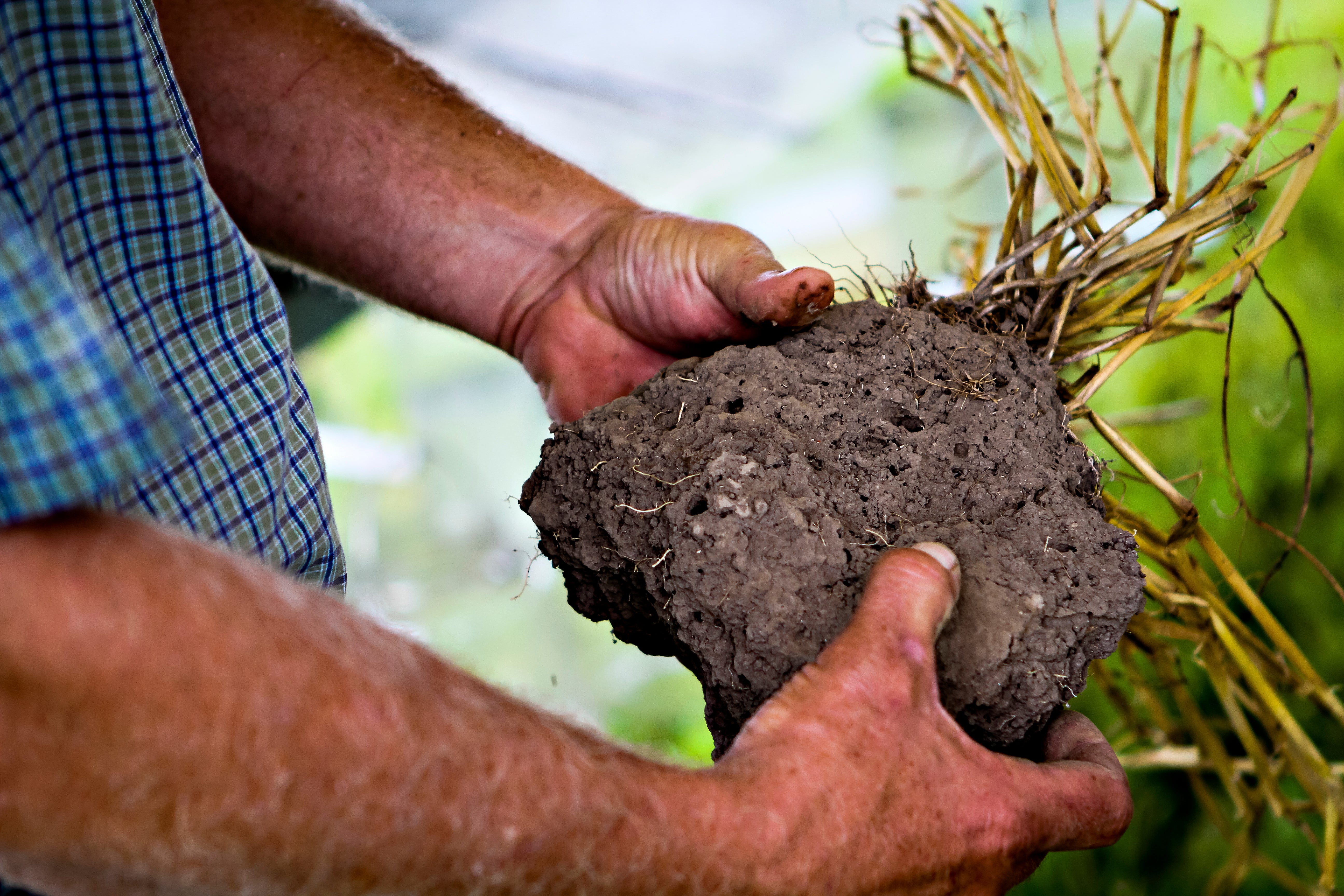
Doug Peterson, State Soil Health Conservationist with USDA, displays soil sample from a field that uses cover crops.
Credit: Kyle Spradley, MU College of Agriculture, Food & Natural Resources
There’s widespread consensus that climate smart agricultural practices like cover cropping, reduced and no-tillage and crop diversification can help farmers adapt to climate change and help reduce greenhouse gas emissions. Yet confidence in the impacts of these practices as a climate solution has been undermined by reliance on models to determine how much carbon has been accrued or retained in soils.
Soil organic carbon accounting and crediting relies on models because of the belief that direct measurement is too costly and cannot provide a practical solution to any large-scale measurement, monitoring, reporting and verification (MMRV) program for tracking soil carbon outcomes.
But that assumption may be wrong. Working with a team of researchers from the University of Illinois and Yale School of the Environment, Environmental Defense Fund found that a rigorous approach to soil carbon quantification that relies on taking soil samples before and after practice adoption across a large number of farm fields is economically feasible.










